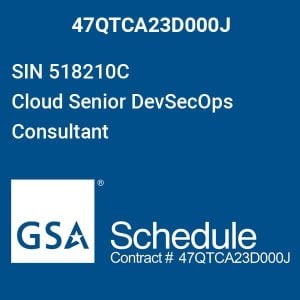Service-Oriented Architecture (SOA) and microservices are the new de-facto norm for modern software development. Container orchestration tools act as a neural network that coordinates these component-based applications in the CI/CD ecosystem. Currently, there are many container orchestration services and tools in the market. Most of them are as Kubernetes-as-a-Service platforms.
In this article, we will look into the container orchestration services available in 2020.
What is Container Orchestration?
In simple terms, container orchestration is the deployment, scaling, networking, and monitoring process of the container-based microservices applications. Container orchestration is vital to ensure resiliency, high availability, and scalability of containerized applications.
It is similar to a DevOps ecosystem that builds, ships, and maintains containerized applications. On the other end, container orchestration is similar to an automated change management process for the containerized microservice applications.
However, why cannot an operations engineer alone take care of the container orchestration mechanism?
Well, if you have only ten or fifteen containers and four or six applications, an operations engineer can manage the deployment and maintenance of containers without difficulty. But, when you have to run 500 microservices in 1500 containers, the complexity of the processes increases. Therefore, the need for a central orchestrator arises to get visibility into these distributed workflows.
Unlock the future of intelligent applications with our cutting-edge Generative AI integration services!
How does a container orchestrator work?
Suppose you deploy your applications into thousands of containers following the microservices architecture of modern software development. Now, since your containers are molded into performing a single task at a time, containers need to communicate with each other to call for other services. But, they vaguely know how to communicate with each other because they are not tightly coupled.
Therefore, a container orchestration tool combines containers into clusters or pods for management feasibility. These container clusters can configure and schedule containers to start and stop, scale-in and, scale-out in response to infrastructure requirements. Also, a container orchestrator:
- Ensure the redundancy and availability of containers.
- Manage the allocation of resources between containers.
- Service discovery, load balancing, and traffic routing among containers.
- Perform health checks on containers.
Therefore, you should understand that containers alone are meaningless when you do not have a compatible container orchestration technology to manage containers seamlessly.
-
 GSA SIN 54151HACS Principal Security Architect$153.15 / Per Hour
GSA SIN 54151HACS Principal Security Architect$153.15 / Per Hour -
 GSA SIN 518210C Cloud Senior DevSecOps Consultant$143.62 / Per Hour
GSA SIN 518210C Cloud Senior DevSecOps Consultant$143.62 / Per Hour -
 GSA SIN 518210C Cloud Senior Microservices Consultant$129.41 / Per Hour
GSA SIN 518210C Cloud Senior Microservices Consultant$129.41 / Per Hour
Container Orchestration Services/ Platforms
Given below are proprietary container orchestration services suitable for enterprise-level container deployments.
Amazon Elastic Container Service (Amazon ECS)
Amazon ECS is the first container orchestration service offered by AWS. Amazon ECS deploys and manages applications built and packaged into Docker containers through a cluster of Amazon EC2 instances. As a special feature, ECS lets you use your own schedulers in addition to the in-built schedulers. You can access the EC2 container service from the AWS management console or through the AWS SDKs.
ECS is best for small-scale container deployments to the cloud. That is if you have a limited number of services and only a few experienced DevOps engineers to operate. Also, ECS is a cost-effective solution that has no additional fees for the control plane, but only the cost for EC2 instances in your cluster and any other AWS resources such as S3. IAM access management is a built-in security feature of Amazon ECS that is available free of charge.
However, ECS is slower to respond to state changes when compared to other Amazon Container Orchestration services. So, if your requirement is a high-performance solution, you can either choose Amazon EKS or Amazon Fargate solutions.
Amazon Elastic Container Service for Kubernetes (Amazon EKS)
Amazon EKS eliminates any hassle you have had with the installation and maintenance of Kubernetes. Namespace isolation, ability to run cron jobs, and stateful workloads are the unique features that differentiate EKS service.
Unlike the ECS service, EKS requires an experienced workforce or a steep learning curve to operate. You will have to pay an additional cost monthly for the control plane and if purchasing the IAM access management feature for EKS. So EKS will not be the best solution for small-scale businesses.
Google Kubernetes Engine (GKE)
Kubernetes developer: Google offers the GKE platform to easily as well as quickly to deploy Kubernetes clusters. GKE is relatively affordable in cost compared with EKS. GKE offers improved and concise interfaces above all the container orchestration services mentioned here.
However, GKE lacks adequate documentation. Thereby, you require a somewhat experienced workforce in the operation of the EKS platform.
Azure Kubernetes Service (AKS)
Azure Kubernetes Service is relatively a new orchestration platform compared to ECS and GKE solutions. Therefore, many of its features are still in alpha or beta stages. Azure Active Directory integration capability for cluster authentication is a unique feature differentiating AKS.
However, if you intend to use AKS as your container orchestration service, make sure your underlying operating system is either Linux (Ubuntu) or Windows. Also, AKS does not support direct customization for virtual machines. AKS also has a similar price model to Amazon ECS that you only need to pay for the resources you consume.
Listed below are other third-party container orchestration associated with Kubernetes, Docker, and Mesos in addition to the above mainstream container orchestration services.
- Docker Enterprise from Mirantis
- IBM Cloud Kubernetes Service
- Red Hat OpenShift Container Platform
- Oracle Cloud Infrastructure Container Engine for Kubernetes
- Alibaba Container Service for Kubernetes
- Marathon of Mesosphere
- Helios
- SaltStack
- Shippable
- Coudify
- Centurion
- Shipper
- Apache Aurora
- HashiCorp Nomad
- D2iQ
- Apache Helix
However, if you expect more flexibility on your hands to configure containers on your rules, the best solution is open-source container orchestration tools. These open source-container orchestration services are the building blocks for the above proprietary services. Namely,
- Kubernetes
- Docker
- Apache Mesos
How to Implement a Container Orchestration Service?
There is a four-stage plan any organization should follow to successfully implement a container orchestration service to manage the containerized software development process.
- Evaluate current infrastructure and identify bottlenecks
- Selection of a suitable tech stack
- Containerization
- Maintenance and optimization
CCT can help and guide you through the above journey with industry expert consultation. So you can choose and implement the right container orchestration service to successfully automate your DevOps cycle for the containerized applications.
Final Thoughts for Container Orchestration Services
The rise of both Kubernetes and Cloud Computing accelerates the software industry towards the development of containerized applications. It is always important to choose the right tools and services when adopting new technology to reap its best benefits. Contact us for effective container solutions.

